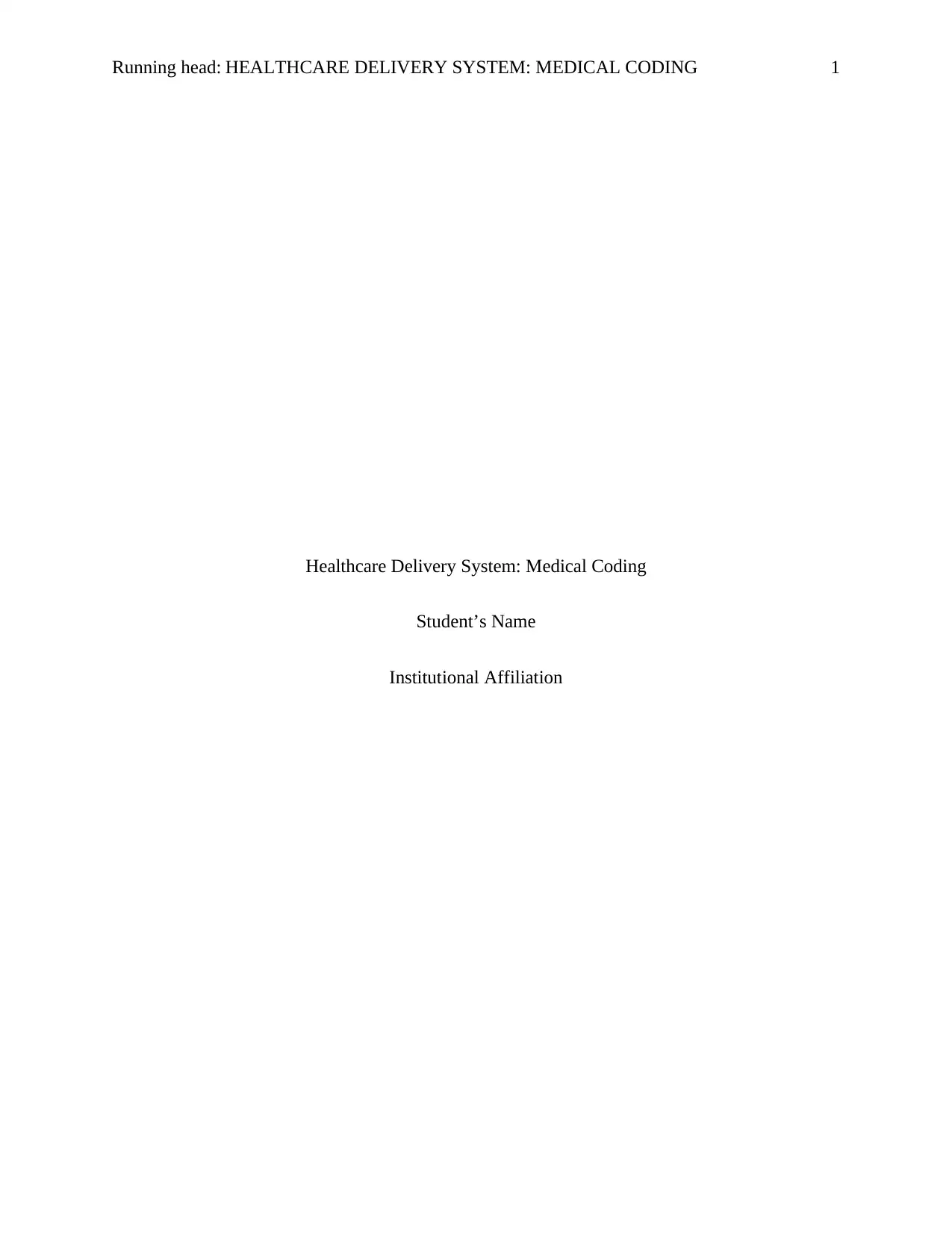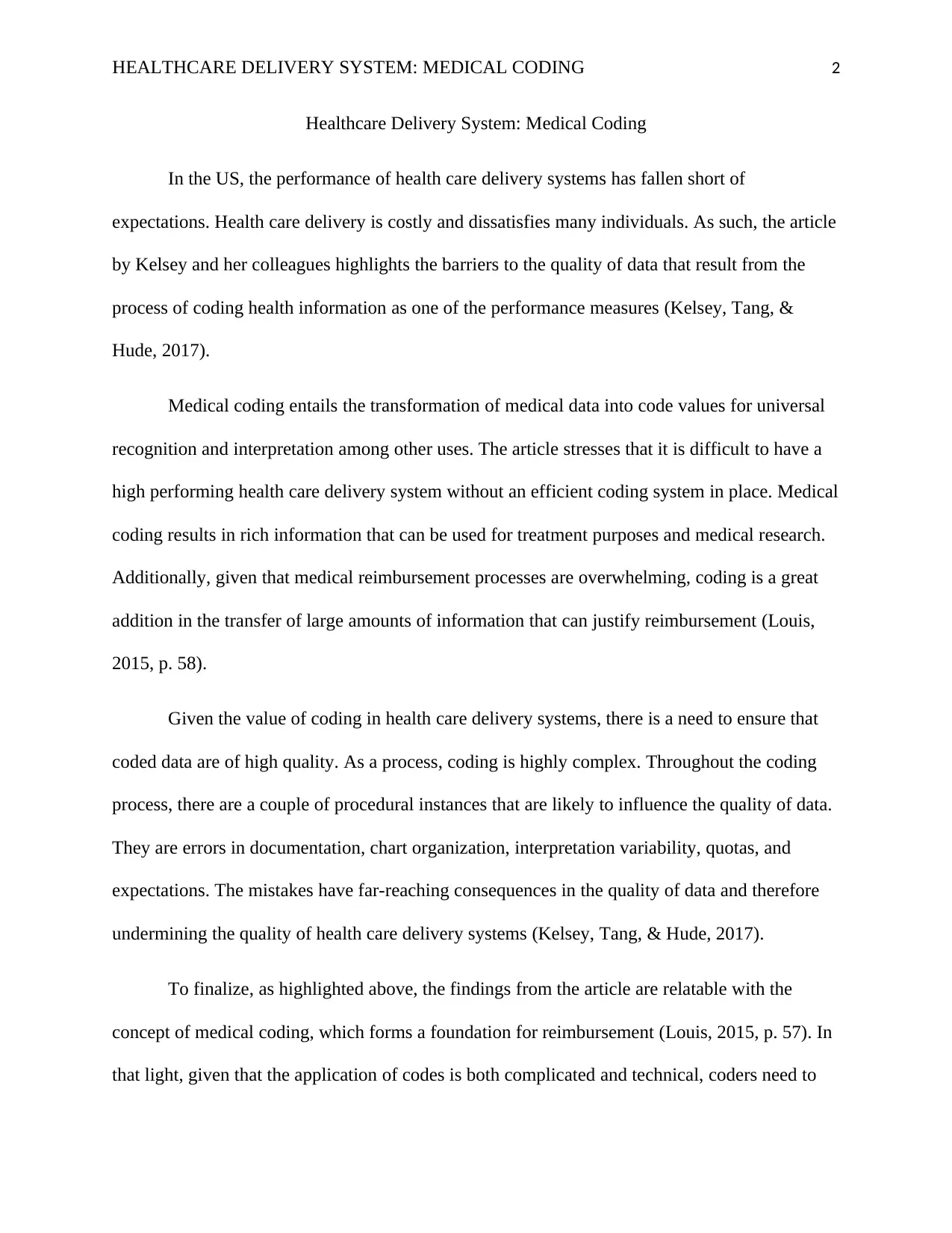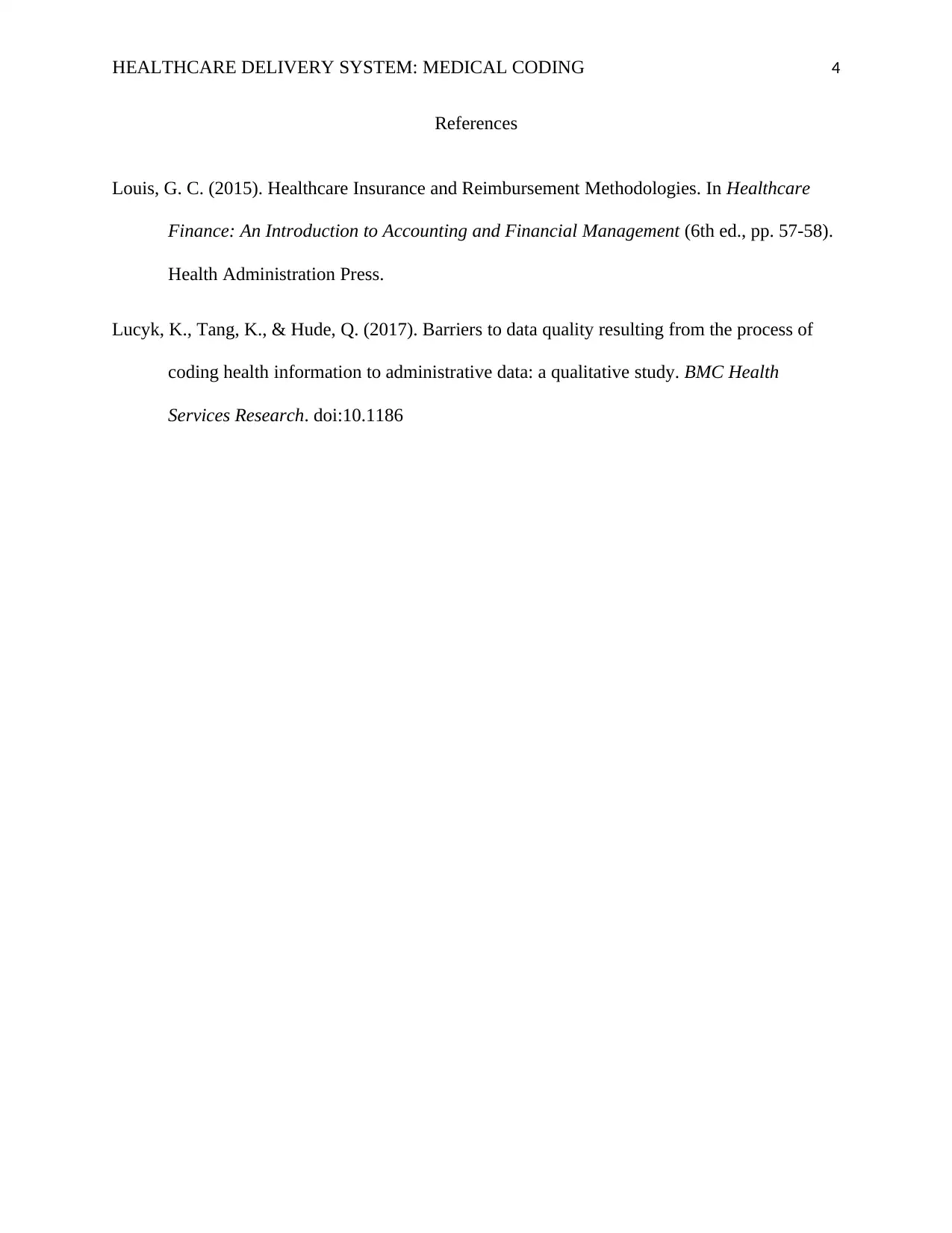Medical Coding and Healthcare Delivery Systems: Research Analysis
VerifiedAdded on 2022/10/01
|4
|462
|13
Homework Assignment
AI Summary
This assignment delves into the critical role of medical coding within healthcare delivery systems. It highlights how coding directly impacts data quality, which is essential for effective reimbursement processes and overall healthcare performance. The assignment references an article published within the last three years to explore the challenges and complexities associated with medical coding, including potential errors and their consequences. The coding process itself is examined, emphasizing its technical nature and the need for high standards to ensure accurate data. The assignment connects the findings to the concepts covered in the course textbook, illustrating the importance of coding in healthcare finance and management. The assignment emphasizes that accurate and efficient coding is vital to optimize healthcare delivery systems.
1 out of 4











![[object Object]](/_next/static/media/star-bottom.7253800d.svg)